Did you know that 4 out of 5 Canadians use a mortgage to buy their first home? If you’re wondering how to apply for a mortgage in Canada, you’re not alone. Mortgages help make homeownership possible, but they can be confusing.
Every homebuyer comes across different types of mortgages, how to apply for a mortgage in Canada, and the smart tips to save money. Whether you’re a first-time homebuyer or just curious, this blog makes applying for mortgages in Canada easy.
Let’s make your homebuying journey smooth and stress-free!
Understanding Mortgages in Canada
A mortgage is a loan to buy a home. You borrow money from a lender (like a bank or credit union) and pay it back over time with interest. If you miss payments, the lender can take the property.
Why Mortgages Matter
- Most Canadians need a mortgage to buy a home.
- Your mortgage affects your budget for years.
- The right mortgage saves you money; the wrong one costs you more.
Now, let’s explore how mortgages work.
Types of Mortgages in Canada
Not all mortgages are the same. Here are the most common types:
Fixed-Rate Mortgage
- The interest rate stays the same for the entire term.
- Payments are predictable.
- Best for buyers who want stability.
Variable-Rate Mortgage
- Interest rates change with the market.
- Payments may go up or down.
- Best if you expect rates to drop.
Open vs. Closed Mortgages
- Open Mortgage: Pay off early with no penalty (higher interest).
- Closed Mortgage: Lower rates but penalties for early repayment.
Government-Insured vs. Conventional Mortgages
- Insured Mortgages: For buyers with less than 20% down payment (requires mortgage insurance).
- Conventional Mortgages: For buyers with 20% or more down payment (no insurance needed).
Choosing the right mortgage depends on your budget and future plans.
Application Process for a Mortgage in Canada
Ready to apply? Here’s a step-by-step guide.
1: Get Pre-Approved
- A lender checks your income, credit, and debts.
- They tell you how much you can borrow.
- Helps you shop for homes within your budget.
2: Find a Mortgage Lender
- Banks: Offer competitive rates but have strict rules.
- Credit Unions: May have flexible terms.
- Mortgage Brokers: Compare multiple lenders for you.
3: Submit Your Application
You’ll need:
- Proof of income (pay stubs, tax returns).
- Employment details.
- Credit report.
- Down payment proof.
4: Understand Mortgage Terms
- Amortization: Total time to pay off the loan (usually 25-30 years).
- Term: Length of your mortgage contract (1-5 years common).
- Interest Rate: Fixed or variable.
Once approved, you’ll sign the papers and get your keys!
Managing Your Mortgage
Got your mortgage? Great, now manage it wisely.
Tips to Save Money
- Make Extra Payments: Pay more than required to reduce interest.
- Renegotiate at Renewal: Get a better rate when your term ends.
- Refinance if Needed: Adjust terms if your finances change.
Watch Out for Fees
- Prepayment Penalties: Some lenders charge if you pay off early.
- Breaking Your Mortgage: Could cost thousands, read the fine print!
Common Mortgage Mistakes to Avoid
Don’t let these pitfalls hurt your finances.
Overextending Your Budget
- Just because you’re approved for $500K doesn’t mean you should spend it all.
- Leave room for emergencies, repairs, and life changes.
Ignoring Long-Term Costs
- Property taxes, utilities, and maintenance add up.
- Factor these into your monthly budget.
Skipping Mortgage Insurance
- If your down payment is less than 20%, you need insurance (CMHC, Sagen, Canada Guaranty).
- Protect the lender if you default.
Wrap Up
Buying a home is one of the biggest financial decisions you’ll make—and knowing how to apply for a mortgage in Canada is key to doing it right.
From choosing the right mortgage type to getting pre-approved and understanding the fine print, a little preparation goes a long way. Avoiding common pitfalls and planning ahead will help you save money and reduce stress.
Need expert guidance on your mortgage journey?
Reach out to Diverse Mortgage Group for personalized support, competitive mortgage options, and step-by-step help through the entire application process. Whether you’re a first-time homebuyer or refinancing your home, we’re here to make your path to homeownership clear and confident.
Frequently Asked Questions
What credit score do I need to get a mortgage in Canada?
Most lenders prefer a score of 650 or higher, but some may accept lower scores with a larger down payment.
How much down payment do I need?
The minimum is 5% for homes under $500K, but putting 20% or more avoids mortgage insurance costs.
Can I get a mortgage if I’m self-employed?
Yes! You’ll need 2 years of tax returns and solid proof of income to qualify.
What’s the difference between fixed and variable rates?
- Fixed rates stay the same for your entire term.
- Variable rates change with the market (could save or cost you more).
How long does mortgage approval take?
Pre-approval takes 1-2 days, while full approval can take a week or more after submitting documents.


